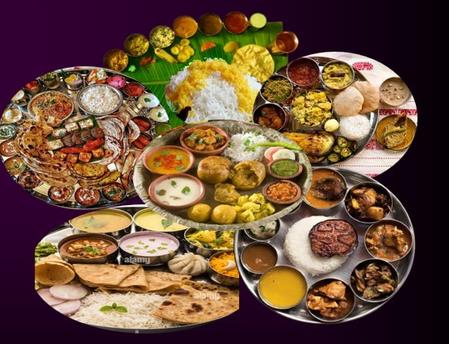High Carb, Saturated Fat, Low Protein Intake Driving Diabetes, Obesity In India: ICMR Study
The study, published in the journal Nature Medicine, showed that most Indians get a staggering 62 per cent of their calories from carbohydrates -- one of the highest in the world.
Much of this comes from low-quality sources like white rice, milled whole grains, and added sugar -- associated with increased metabolic risk (diabetes, prediabetes, and obesity).
White rice dominates diets in the South, East, and Northeast, while wheat is more common in the North and Central regions.
High sugar intake is also concerning, with 21 states and union territories exceeding the national recommendations of less than 5 per cent of energy for added sugar intake, revealed researchers from the ICMR-National Institute of Nutrition, Hyderabad, and Madras Diabetes Research Foundation (MDRF), Chennai.
The cross-sectional survey included a nationally representative sample of 1,21,077 adults from urban and rural areas of 36 states and union territories.
The findings showed that while average total fat intake stayed within national guidelines (less than 30 per cent of energy), saturated fat intake exceeded the recommended threshold for metabolic health (less than 7 per cent of energy) in all but four states (Jharkhand, Chhattisgarh, Arunachal Pradesh, and Manipur).
Consumption of monounsaturated and omega-3 polyunsaturated fats remains low across regions.
Overall protein intake in India is suboptimal, averaging 12 per cent of daily calories, with the highest intake (14 per cent of energy) in the Northeast region.
Most protein in Indian diets comes from plant-based foods like cereals, pulses, and legumes (9 per cent of energy).
Intakes of dairy and animal protein varied widely, but intakes remained low nationwide (2 per cent of energy and 1 per cent of energy respectively).
“Our findings clearly show that typical Indian diets, heavy in carbohydrates from white rice or whole wheat flour, and low in quality protein, are putting millions at risk. Simply switching from white rice to whole wheat or millets is not enough unless total carbohydrate intake decreases and more calories come from plant or dairy proteins,” said lead author Dr R.M. Anjana, President at MDRF.
Importantly, the study showed that replacing carbs with red meat protein or fats did not have the same protective effect.
“These nationwide findings should inspire policy reforms, especially regarding food subsidies and public health messaging to help Indians shift towards diets richer in plant-based and dairy proteins, and lower in carbohydrates and saturated fats,” said Dr V. Mohan, senior author of the paper and Chairman, MDRF.
He stressed that such dietary changes could help reverse current nutrition trends, address widespread protein gaps, and improve overall diet quality.

Legal Disclaimer:
MENAFN provides the
information “as is” without warranty of any kind. We do not accept
any responsibility or liability for the accuracy, content, images,
videos, licenses, completeness, legality, or reliability of the information
contained in this article. If you have any complaints or copyright
issues related to this article, kindly contact the provider above.
Most popular stories
Market Research

- Seoul Exchange, One Of Only Two Licensed Platforms For Unlisted Securities, Will Exclusively Use Story To Settle Tokenized Rwas
- Phase 6 Reaches 50% Mark As Mutuum Finance (MUTM) Approaches Next Price Step
- 0G Labs Launches Aristotle Mainnet With Largest Day-One Ecosystem For Decentralized AI
- Solotto Launches As Solana's First-Ever Community-Powered On-Chain Lottery
- Kintsu Launches Shype On Hyperliquid
- Blockchainfx Raises $7.24M In Presale As First Multi-Asset Super App Connecting Crypto, Stocks, And Forex Goes Live In Beta





















Comments
No comment